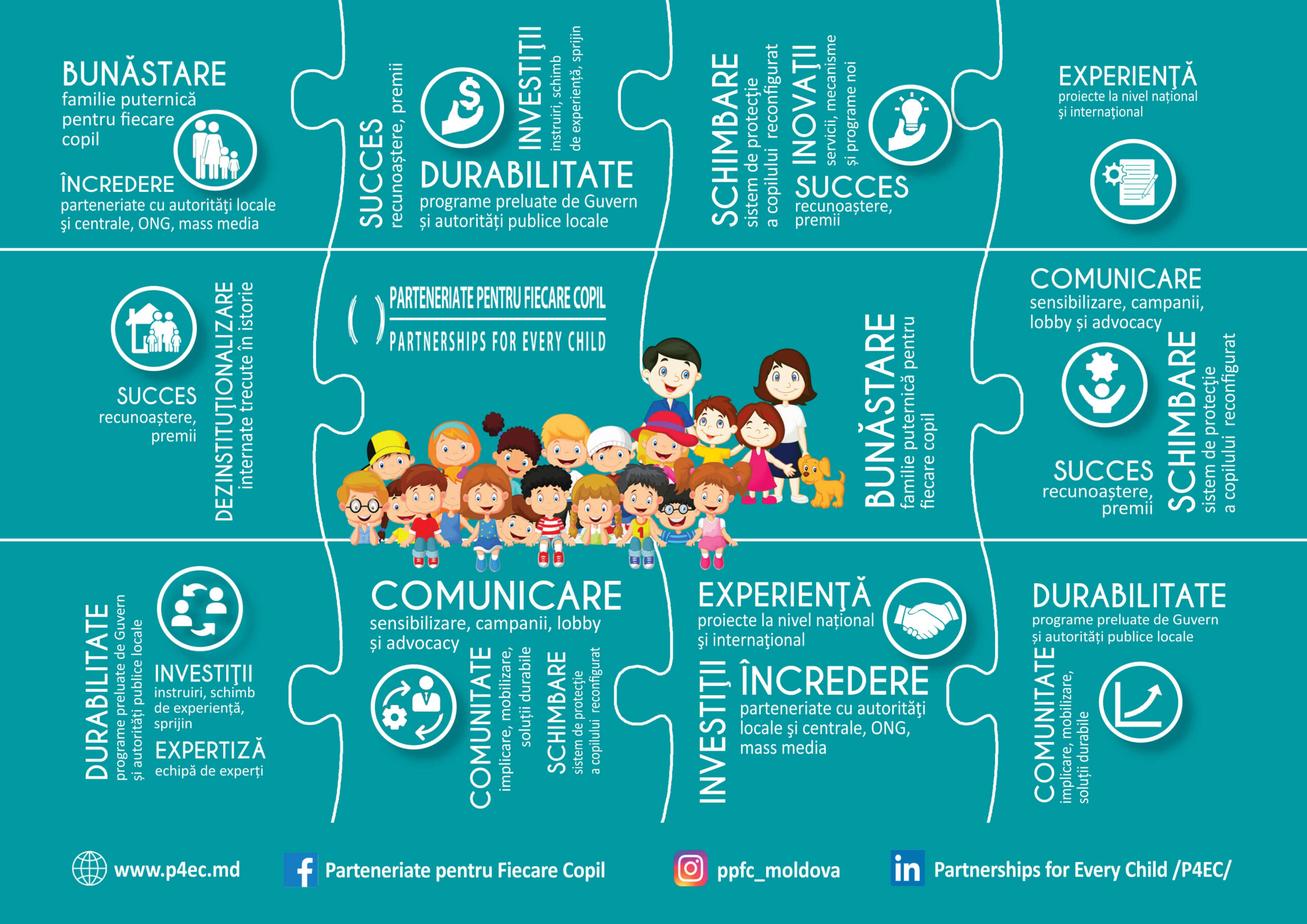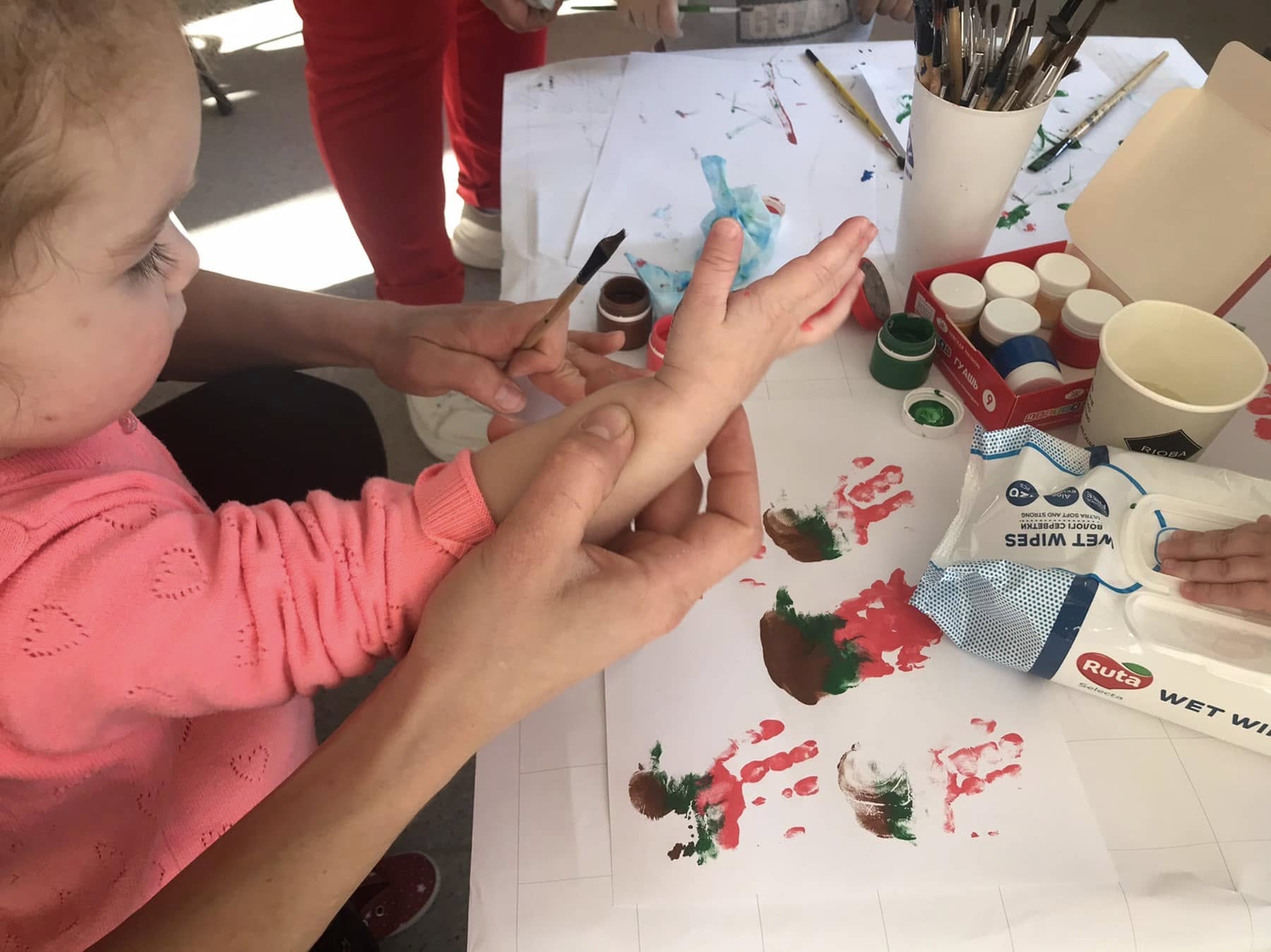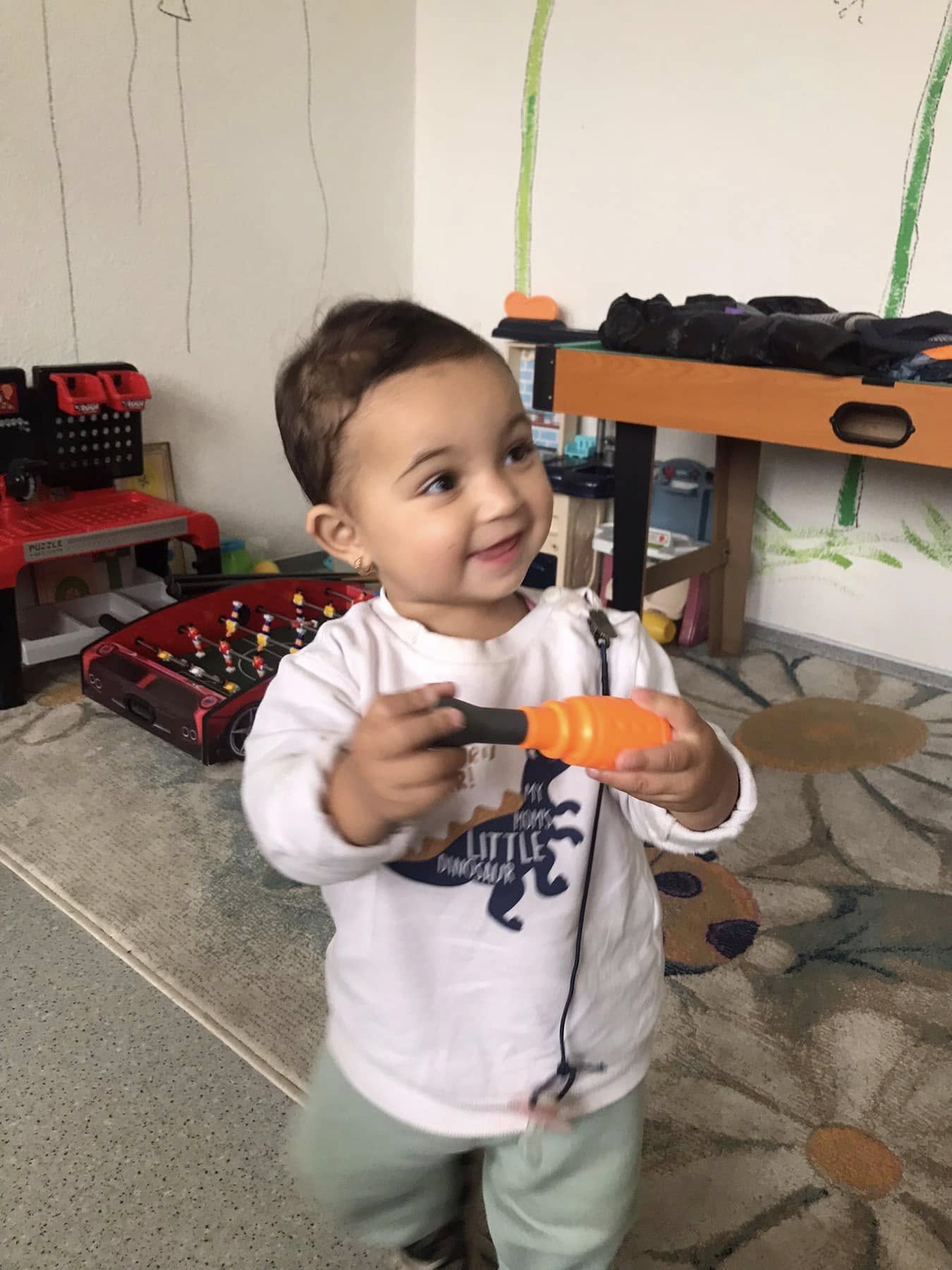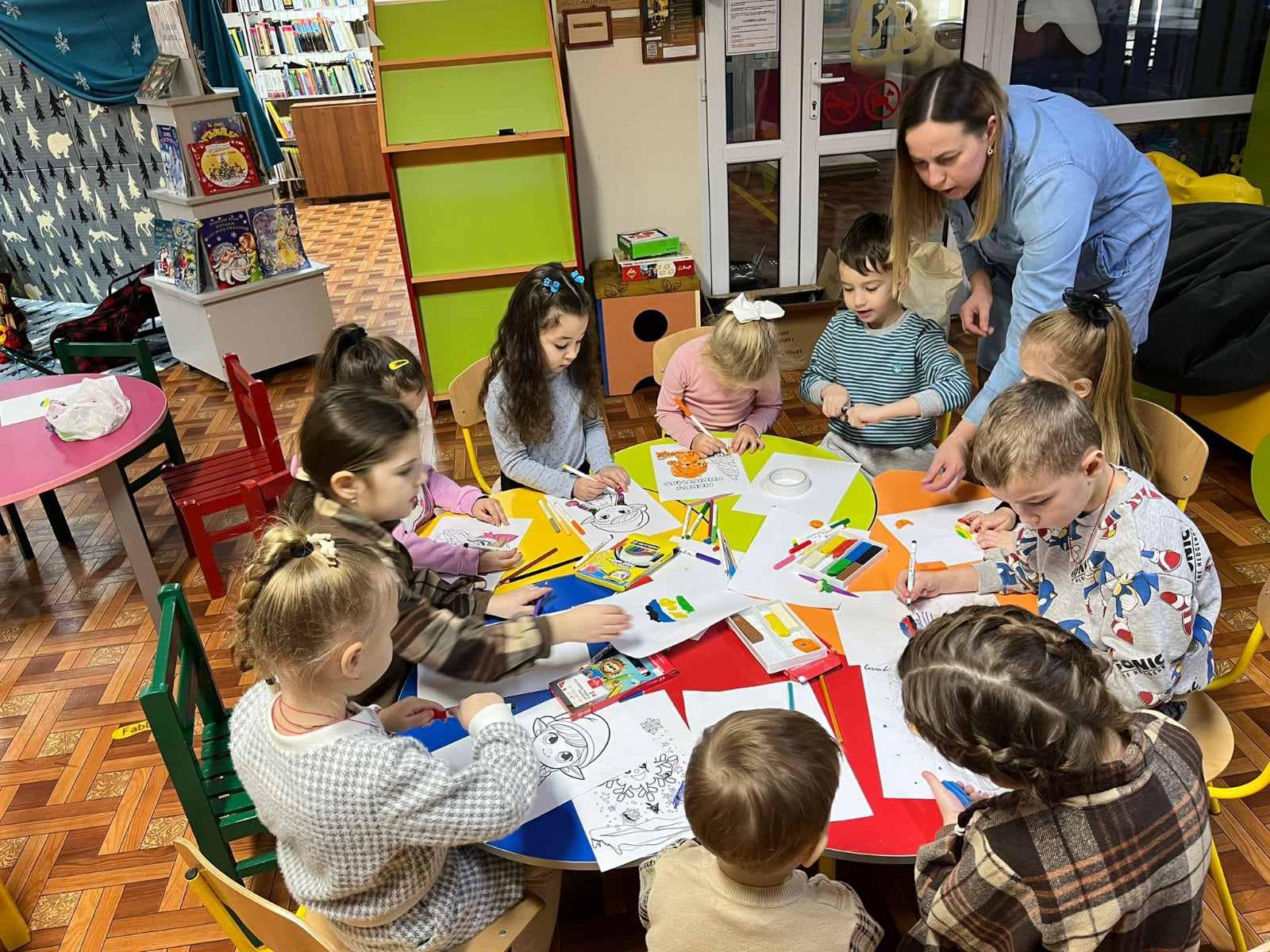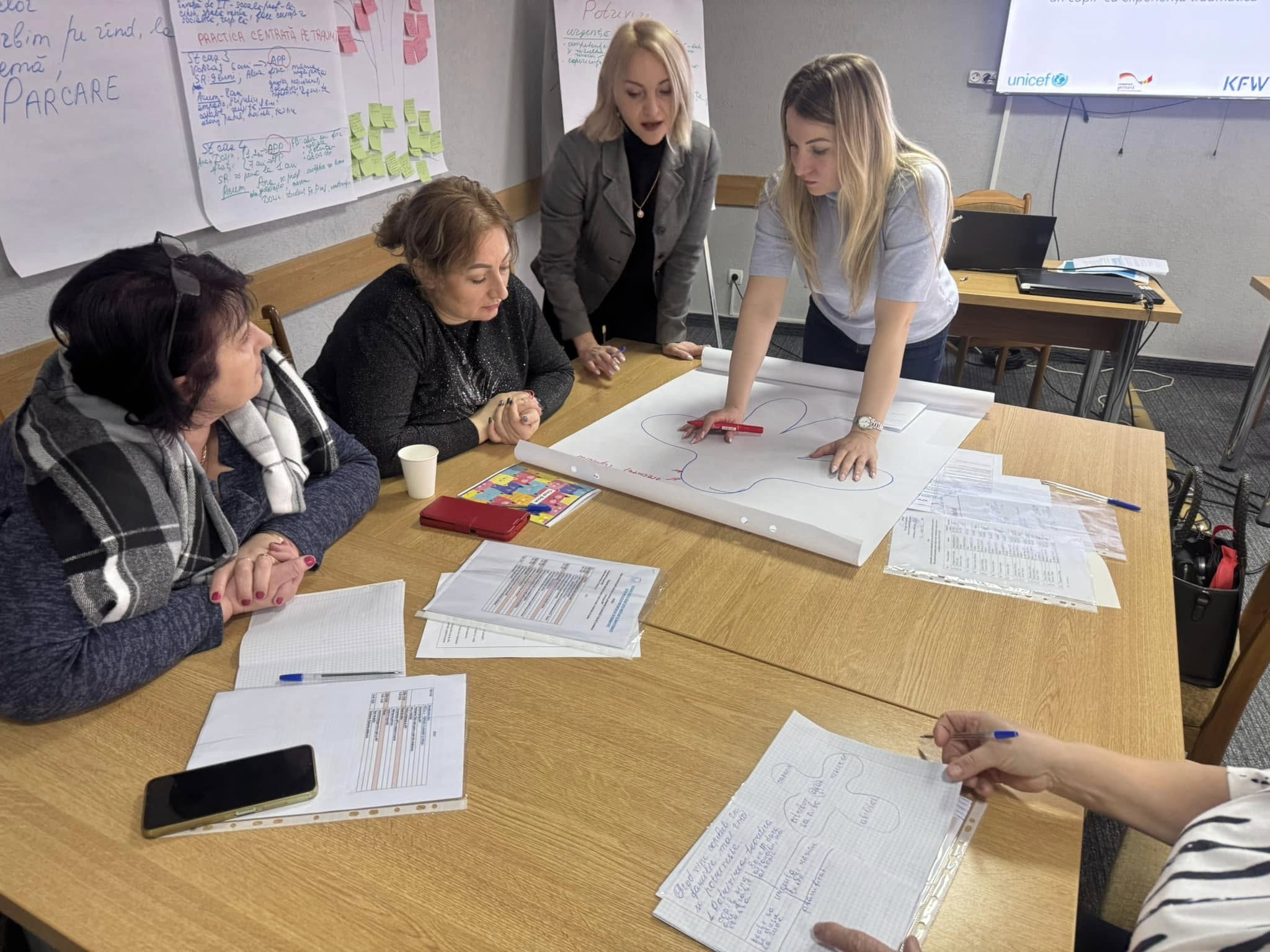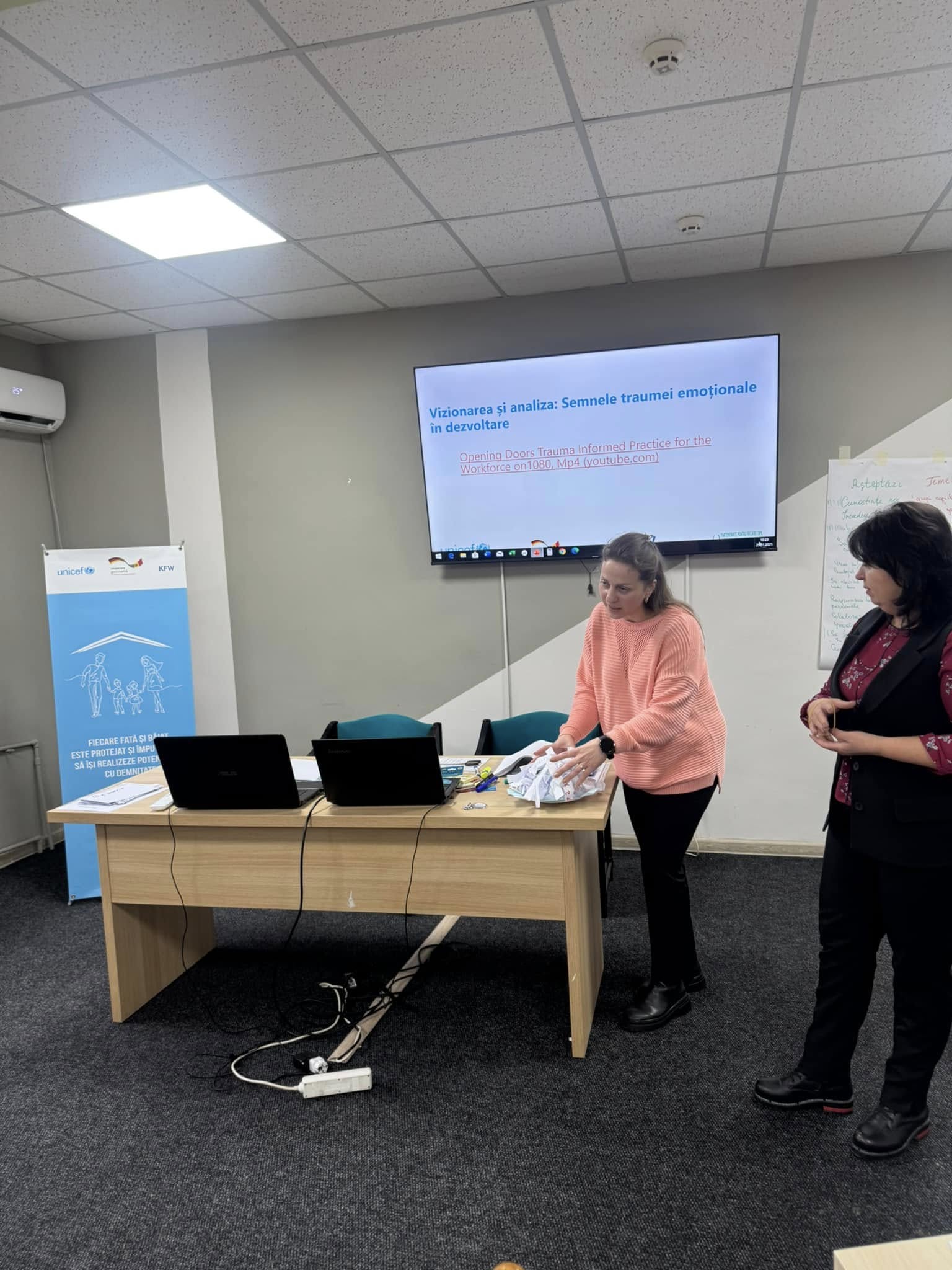Who we are
For over 30 years, the organization Partnerships for Every Child has been at the forefront of child protection reform in the Republic of Moldova.
With extensive experience in the field, we provide support to local and national authorities in developing and implementing services and programs designed to help children and their families. These initiatives are backed by effective communication and advocacy strategies and aim to prevent the separation of children from their families, as well as strengthen community-based services that guarantee every child's right to grow up in a family.
Our efforts have helped keep approximately **100,000 children with their families**, promoted inclusive education for children with disabilities, and supported children and young people with lived experience to develop their skills and claim their rights.
Guided by the UN Convention on the Rights of the Child and the national priorities of the Republic of Moldova, P4EC continues to strengthen the child protection system so that every child can grow up in a safe, stable, and supportive environment.
Our history
1995
EveryChild began working in the Republic of Moldova, implementing an EU-funded project in collaboration with the Chișinău City Hall.
1996
The evaluation of the beneficiaries at the institution for girls with disabilities in the city of Hîncești was launched. With the support of specialists from the United Kingdom, the situation of all the girls was assessed, and the team began providing concrete support focused on improving care conditions, ensuring adequate nutrition, protecting health, meeting daily needs and, last but not least, preparing the girls for reintegration into the community. In parallel, a dedicated group of volunteers launched awareness-raising actions both nationally and internationally to highlight the situation of children in institutions and the urgent need for change, mobilizing society and attracting international support and investment to give children the chance to grow up in families, thus laying the foundation for the reform that, years later, would transform the child care system in the Republic of Moldova.
1997
The Chișinău Municipal Directorate for the Protection of Children’s Rights was created for the first time in the country.
1998
The first team of 15 social assistants was recruited and trained to pilot Family Support and Reintegration Services in the municipality of Chișinău.
1999
The first Small Group Home for children with disabilities who were left without parental care was opened in Chișinău. EveryChild expanded its activity to Cahul and Tiraspol to disseminate Family Support and Reintegration Services.
2000
The piloting of the Professional Parental Assistance Service was launched for the first time in the country, in cooperation with the Chișinău Municipal Directorate for the Protection of Children’s Rights.
2001
The first 10 professional foster parents were employed by the Chisinau Directorate for the Protection of Children’s Rights, taking 15 children into care. The professional foster care service began a process of consolidation with the establishment of a dedicated “own house,” which hosted both the service and the team of social workers responsible for managing placements and monitoring children. In parallel, social pedagogues from community centers were trained to identify vulnerable children and families and to collaborate with social workers in their assessment, as part of efforts to prevent risk situations.
Within the Support Service, a voucher model for vulnerable families was piloted as a rapid intervention mechanism and a form of targeted support addressing children’s needs. In Cahul, the Child Protection Directorate was established, becoming the second specialized structure in the Republic of Moldova dedicated exclusively to child protection and marking an important step in the expansion of specialized services at the local level.
Internally, the organization underwent a process of institutional transformation, with the European Children’s Trust becoming EveryChild. The new entity took over the values, developed programs, and team, strengthening its identity and capacity to support reforms in the field of child protection in the Republic of Moldova.
2002
The first Day Center for children with disabilities was opened in Cahul, in collaboration with UNICEF and local authorities. The EveryChild program was expanded to the fourth district—Ungheni, where a program for the development of integrated social services for children and families was implemented in collaboration with UNICEF and the Ungheni District Council.
2003
The Republican Center for Street Children was reorganized into a child-friendly service. EveryChild began implementing an EU-funded project—Tacis “Capacity building in social policy reform.”
2004
The EveryChild program was expanded to the fifth district—Orhei. In collaboration with the Ministry of Labor and Social Protection, legislation and methodology for preventing institutionalization were developed and tested in three districts—Cahul, Orhei, and Ungheni.
2005
The communication and advocacy campaign “Call the Future Home” was initiated regarding the need for reform in the child care system, which was recognized as one of the most successful in the field. The first three residential institutions in Ungheni, Orhei, and Cahul were evaluated, and local strategies for reforming the child care system were developed. An analysis of expenditures for residential child care in the Republic of Moldova and a comparative analysis of the costs of residential care and community services were carried out; the findings were presented to central authorities to influence the initiation of changes in the system.
2006
The national reform for the reorganization of the residential child care system was launched by the country’s President at a national conference organized by EveryChild, in collaboration with UNICEF and the Presidency of the Republic of Moldova. A comprehensive package of services for preventing institutionalization and family-type alternative services was developed in three districts, and the lessons learned were disseminated in 50% of the districts in Moldova. Institutionalization was prevented for 2432 children in three districts, 245 children were reintegrated into their families, and 55 children were placed in professional parental assistance. The EveryChild program expanded to the sixth district—Soroca, supporting local authorities to develop an integrated social service system for children and families.
2007
As a result of the advocacy campaign promoted by EveryChild and with the support of UNICEF, the first residential institution in the republic, the auxiliary school in Alexandru Ioan Cuza, Cahul, was closed. The Regulation of the Commission for the Protection of Children in Difficulty and the Professional Parental Assistance Service were approved by the Government. These legislative acts facilitated the reduction of the number of children in residential care. The National Strategy for the reorganization of the child care system and the Action Plan were developed and approved by the Government. EveryChild launched the implementation of a program for preventing infant abandonment in Chișinău and Ungheni. The second residential institution in Cahul entered the transformation process. EveryChild, in collaboration with the British organization Oxford Policy Management, initiated a DFID and SIDA-funded project “Support in the development of efficient and sustainable social assistance services” to support the Ministry of Social Protection, Family, and Child in implementing social assistance reform.
2008
The National Program for the development of an integrated social services system and Quality Standards for the Professional Parental Assistance Service were approved by the Government of the Republic of Moldova. The Law and Regulation of Social Assistance (a benefit granted based on income evaluation) were approved by Parliament. Nine other districts created Commissions for the protection of children in difficulty as a result of the approval of national legislation.
2009
The Law on Social Services was approved by Parliament. Social assistance was extended nationwide; approximately 16,000 families monthly (most of them being families with children) benefit from financial support according to the new legislation. The parent-child centers created in Ungheni and Chișinău became operational and offered specialized support to infants and their parents, preventing abandonment and facilitating the reintegration of the mother and child into the family and community. In Cahul, the first stage of the reorganization of the boarding school was completed: all children (along with the teaching staff) were integrated into general schools; 47 out of 131 children were reintegrated into their biological and extended families. A family-type placement center was created and is operational. Nine new districts were covered by EveryChild by providing technical assistance to local authorities in developing the Professional Parental Assistance Service and the Institutionalization Prevention System.
2010
EveryChild Moldova, in collaboration with UNICEF, piloted an inclusive education model for children with special needs who were in residential care in Fălești and Ungheni. 144 children from 3 special schools were evaluated; 91 children were reintegrated into families or placed in alternative family care; 148 directors and deputy directors from 74 community schools were trained in inclusive education; one institution was closed and two others were prepared for closure in 2011. EveryChild, in collaboration with OPM and the Ministry of Social Protection, Family and Child, provided 80 hours of training for 800 community social workers and 220 employees of the Community Social Assistance Service and the Home Care Service throughout the country. Nine other new districts were covered by EveryChild in providing technical assistance to local authorities to develop the Professional Parental Assistance Service and the Institutionalization Prevention System. EveryChild began implementing, in collaboration with the Ministry of Labor, Social Protection and Family and with local authorities in Călărași, Fălești and Ungheni, a USAID-funded project “Ensuring the child’s right to a family and their protection from violence, abuse, neglect and exploitation,” which is being implemented in 3 districts covering 8 residential institutions for children and concurrently developing systems for preventing institutionalization and family and community-based services.
2011
An Action Plan for the implementation of the UN Guidelines on alternative child care was developed based on an analysis of national legislation. A new Law on child protection, regulations, and standards for social services are in the process of being revised and developed in accordance with the UN Guidelines. 2 auxiliary schools that entered the transformation process in 2011 were closed, another 4 residential institutions from 4 districts with 372 children were evaluated, 3 of them were closed; 140 children were reintegrated into families, 88 children were placed with extended family or alternative family care, 77 graduated from school. In Cahul, the transformation process of the former residential institution was completed. The social services complex includes a family-type placement center, social apartments for young graduates, and vocational workshops: tailoring, cooking/confectionery, woodworking, and computer use. The capacities of the center’s staff were strengthened in providing continuous support to children and young people in the process of re/integration into family, school, and community. Within the complex, children benefit from a Life Skills Training Program and a Vocational Guidance Program. 26 districts were supported in developing and implementing the Professional Parental Assistance service and the institutionalization prevention system.
2012
We officially became “Partnerships for Every Child”.
The Government approved the Regulation on reallocating funds from residential institutions to social and educational services, marking an important step toward reorienting the child protection system toward family-based care.
The Professional Foster Care Service was developed in the Transnistrian region, in collaboration with the organization’s local branch, with approximately 40 specialists trained with the organization’s support.
In the districts of Fălești and Ungheni, the Child Helpline was launched – it was later expanded and adopted as a national mechanism.
2013
Law No. 140 on child protection was developed and approved, aligned with the UN Guidelines for the Alternative Care of Children. The law was adopted following extensive consultations with all stakeholders, including representatives of the Church, representing an essential step toward a national consensus for change. In the same context, the Family Support Service was regulated by Government Decision, enabling its nationwide implementation.
In the districts of Ungheni and Fălești, an intersectoral cooperation mechanism for the identification and assistance of child abuse cases was piloted in 64 communities and later proposed for Government approval. For the first time, multidisciplinary teams were established at the community level. Approximately 2,000 professionals from the social, education, health, police, and local public administration sectors were trained to work together in the best interests of the child.
Four residential institutions were closed, and another four were included in an evaluation process for transformation or closure. A total of 322 children were reintegrated into families or placed in alternative care, while 77 schools in Ungheni, Fălești, and Călărași were included in piloting the inclusive education model, contributing to equal access to education for children with special educational needs.
Ungheni became the first district in the Republic of Moldova with no children placed in residential institutions.
2014
Minimum quality standards for the Family Support Service were approved, and the Regulation on Professional Foster Care was revised.
Over 1,000 specialists were trained to provide better services to children and their families. The capacities of 26 social assistance and family protection departments were strengthened in delivering the Professional Foster Care Service.
In the field of inclusive education, a capacity-building program for over 150 support teachers in four districts was completed. Psycho-pedagogical Assistance Services supported mainstream schools in preparing for the inclusion of children from auxiliary schools, and 20 resource centers were opened using local budgets.
At the local level, three additional residential institutions were supported in the transformation process, continuing the transition from institutional care to family- and community-based services.
Efforts to promote child participation continued through the strengthening of Children’s Consultative Councils (CCCs). CCC members actively contributed to the development of the new Child Protection Strategy and participated in a qualitative study on abuse in social, educational, and law enforcement services conducted in several districts, with children’s views presented at a national conference.
The Child Helpline continued to be a key protection tool, registering 1,157 calls that led to the identification and resolution of 416 abuse cases.
2015
I supported national authorities in improving the legal framework so that decisions made for children take into account not only crisis situations, but also the real needs of the child and the family.
Thirty-five Psychopedagogical Assistance Services were trained, and local multidisciplinary teams were supported to work better together. At local level, we tested prevention and family support programs, starting from the realities of the communities.
The PANDA Programme was launched, dedicated to children growing up in families affected by alcohol consumption. At the same time, the National Model of Practices “Right Actions – TOGETHER – for Every Child” was launched, inspired by lessons from the reform of the residential care system and by Scotland’s experience. The model demonstrated the importance of early response when the first concerns about a child’s well-being arise, across all sectors: education, health, social assistance, and public order. Subsequently, the pilot results formed the basis for Government Decision no. 143, which regulates intersectoral cooperation for primary prevention and ensuring child well-being.
We also emphasized promoting children’s voices: 574 children were monitored through Children’s Consultative Councils; 2,591 students participated in non-discrimination promotion activities; and 494 professionals were supported in managing 263 child protection cases. The interventions supported 143 children to return home from institutions and helped 5,284 children remain with their families through primary and secondary support services.
2016
We brought the internationally recognized parental education programme “Mellow Parenting” to the Republic of Moldova, for both mothers and fathers. The programme is based on attachment principles, focuses on strengthening the parent–child relationship, and develops parenting skills from the earliest stages of a child’s life.
The pilot phase began in five regions—Cahul, Călărași, Fălești, Nisporeni, Ungheni, and the municipality of Chișinău—with approximately 115 mothers and 115 children benefiting from programme activities.
2017
We continued to promote children’s participation in decision-making processes that concern them, especially for children within the child protection system. During the Republic of Moldova’s reporting process on the implementation of the UN Convention on the Rights of the Child, the UN Committee on the Rights of the Child included a recommendation to replicate the Children’s Consultative Councils (CCC) model nationwide.
Launched in 2011, the CCC initiative was at that time implemented in 10 districts. A total of 494 children and young people, members of the Children’s Consultative Councils and the National Children’s Consultative Council, became an active voice in the development and monitoring of social services.
2018
Alongside the Mellow Parenting programme, three other innovative initiatives were piloted for children with special educational needs and their families: Makaton, Portage, and Communication through Music, developed in close cooperation with the Ministry of Education.
Portage and Communication through Music were implemented in five districts, while Makaton was rolled out nationally in 12 districts with the support of the Ministry of Education. Over 200 decision-makers and practitioners participated in capacity-building activities, and 65 specialists were trained as programme practitioners. At the same time, approximately 650 children aged 0–7 with complex educational needs and 424 parents directly benefited from specialized support services.
Amendments to the Public Finance Law established a minimum package of social services, mandatorily funded from the state budget. This change was also the result of a complex advocacy process.
2019
The “Partnerships for Every Child” experience was taken up and applied in the Chüy region of Kyrgyzstan, working alongside colleagues from the League of Child Rights Defenders. We provided support and expertise to strengthen the child protection system, promoting the development of family- and community-based social services, as well as the transformation and closure of residential institutions.
As a result, one institution was closed; 274 children were supported to leave institutional care and return to their families; 3,374 children at risk of separation were supported to remain with their families; 424 decision-makers and professionals were strengthened to prioritize family-based care and the best interests of the child; 124 residential institution staff were trained to support service transformation; and 79 teachers were trained to support the inclusion of children in mainstream schools.
2020
In the context of the state of emergency declared due to the COVID-19 pandemic, with the support of our partners, we mobilized financial resources totaling €150,000 for rapid-response interventions, which were directed toward the healthcare system, social services, and families in vulnerable situations.
Eight medical institutions from different regions of the country benefited from essential medical equipment worth approximately €20,000, contributing to improved safety conditions for both medical staff and patients.
The staff and children of a residential care center in the municipality of Hîncești were supported through the provision of personal protective equipment, including masks, gowns, gloves, and disinfectants.
150 vulnerable families from several districts received packages containing food and hygiene products as an immediate support measure to cover their basic needs.
2021
Technical assistance activities and child protection system strengthening were carried out in the districts of Ștefan Vodă, Taraclia, Cimișlia, and Cantemir. Interventions focused on the development of social services for children and families, as well as on expanding the child participation model at community level.
At national level, support was provided to strengthen the capacities of education system specialists in applying Government Decision No. 143, which regulates the intersectoral cooperation mechanism for the primary prevention of risks related to child well-being. In cooperation with the Ministry of Education and Research, 2,492 teachers from different levels of education were trained, increasing the capacity of educational institutions to identify and address children’s needs at an early stage.
As a result of implementing the cooperation mechanism:
- 557 educational institutions applied the mechanism;
- the well-being of 17,629 children was monitored;
- 6,452 children received direct support from the education sector;
- 625 children were referred to social assistance or other specialized services.
At the same time, the child care system reform process was resumed, contributing to the preparation of evaluations of three residential institutions. As a result, two institutions were closed, in cooperation with the Ministry of Education and Research and the Ministry of Labour and Social Protection, with children being redirected to family-based care solutions and community services.
2022
Following the outbreak of the war in Ukraine, we intervened as part of the national humanitarian response by operating in four UNICEF – established Blue Dots at the main entry points to the Republic of Moldova: Palanca, Sculeni, Leușeni, and Chisinau International Airport.
In these safe spaces, refugee families received information, counselling, and specialized support, while unaccompanied or separated children were identified, assessed, and protected in line with child protection procedures. In cooperation with the Border Police and relevant authorities, child protection specialists worked to prevent abuse, exploitation, and child trafficking in a high-risk context.
Through the activities of the four Blue Dots and mobile teams managed by Parteneriate pentru Fiecare Copil, with UNICEF support:
- over 14,000 children and more than 12,000 parents and caregivers benefited from safety, support, and protection;
- more than 8,000 families received essential items, including clothing and footwear.
For the first time, an evaluation of social services for children and families was conducted, and the National Programme for the Protection of Children’s Rights 2022–2026 was developed, ensuring the continuation of the child care system reform in two institutions. In parallel, the local child protection system was strengthened in four districts of the country.
2023
The implementation of the Better Learning Programme (BLP) was launched in the Republic of Moldova. BLP is an evidence-based psychosocial support programme that helps children manage stress, rebuild confidence, and improve learning outcomes in a safe and inclusive environment.
The programme addresses both refugee children and children from host communities and was adapted to the cultural, educational context and specific needs of the Republic of Moldova. Teachers were also supported through training, enabling them to care not only for children’s well-being but also for their own emotional well-being.
Results:
- 15 certified national trainers
- over 1,000 teachers trained
- 32 schools from the north, centre, and south involved in implementation
- over 13,000 children supported, including refugees and children from host communities
2024
Parental education programmes were strengthened through the expansion of the programme package with two new initiatives, developed in direct response to the real needs of parents:
- a programme dedicated to refugee parents, supporting their adaptation and life reconstruction in a new context;
- the PEACE Programme – Empathetic, Accountable, Aware and Balanced Parents, centred on the parent–child relationship and the promotion of positive parenting practices based on empathy, non-violent discipline, and gender equality.
